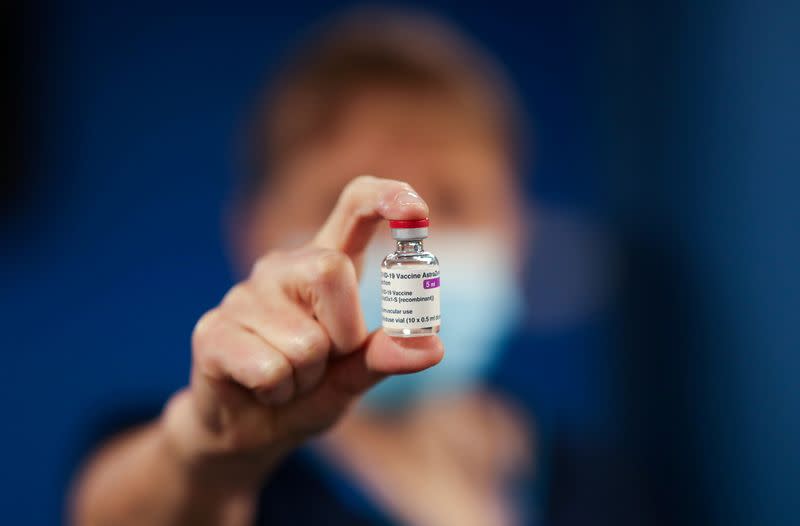LONDON (Reuters) – Scotland’s vaccination campaign appears to be significantly reducing the risk of hospitalization for COVID-19, suggesting that Pfizer-BioNtech and Oxford-AstraZeneca vaccines are highly effective in preventing serious infections, preliminary study results showed on Monday.
The results of the study, which covered the entire Scottish population of 5.4 million people, showed that in the fourth week after the initial dose, the Pfizer and AstraZeneca vaccines reduced the risk of hospitalization by up to 85% and 94%, respectively.
“These results are very encouraging and have given us great reason to be optimistic about the future,” said Aziz Sheikh, a professor at the Usher Institute at the University of Edinburgh who co-led the study.
Sheikh warned at a news conference that the results are preliminary data, still to be reviewed by independent scientists, but added: “I am very encouraged. Now we have national evidence … that vaccination provides protection against hospitalizations by COVID- 19. “
He said he hoped other countries using the same two vaccines and a similar strategy – such as England and Wales, for example – would see a similar positive impact in reducing the number of people hospitalized with COVID-19.
Data for the effect of vaccines in Scotland were collected between 8 December and 15 February. The researchers said that during this period, 1.14 million vaccines were administered and 21% of Scotland’s population received the first dose.
Among those aged 80 and over – one of the highest risk groups for COVID-19 – vaccination was associated with an 81% reduction in the risk of hospitalization in the fourth week, when the results of both vaccines were combined.
Jim McMenamin, director of COVID-19 incidents at Public Health Scotland, said the findings are particularly important “as we move from expectation to firm evidence of vaccine benefits.”
(Reporting by Kate Kelland, editing by Mark Heinrich)
